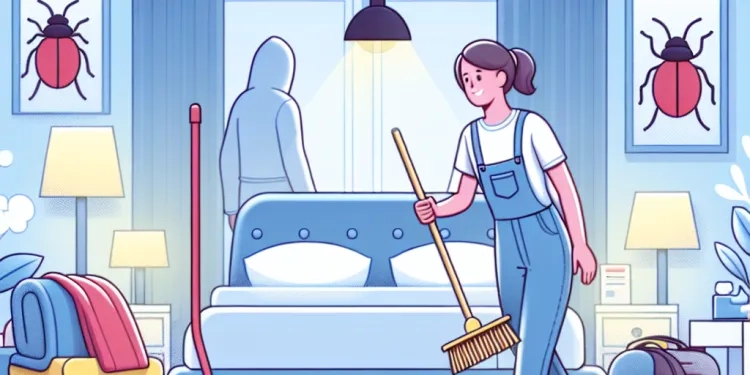
Find Help
More Items From Ergsy search
-
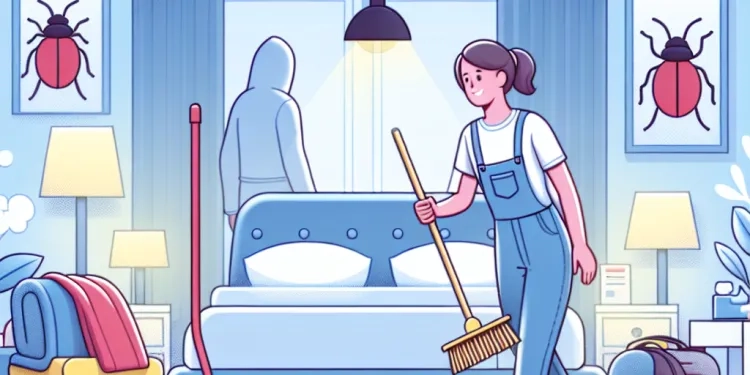
Are bed bugs dangerous?
Relevance: 100%
-
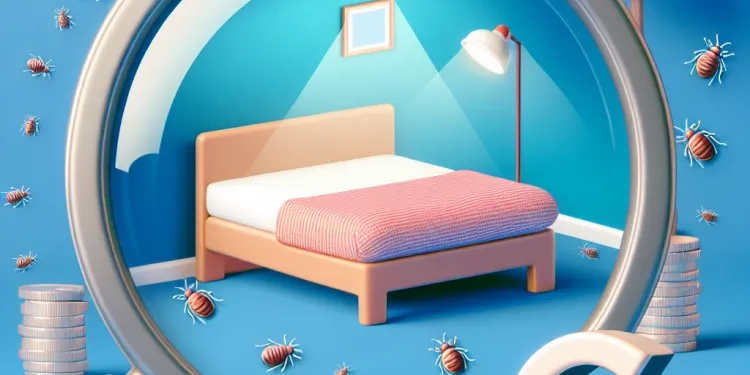
Do bed bugs only live in beds?
Relevance: 80%
-

Bed Bugs / bedbugs
Relevance: 78%
-
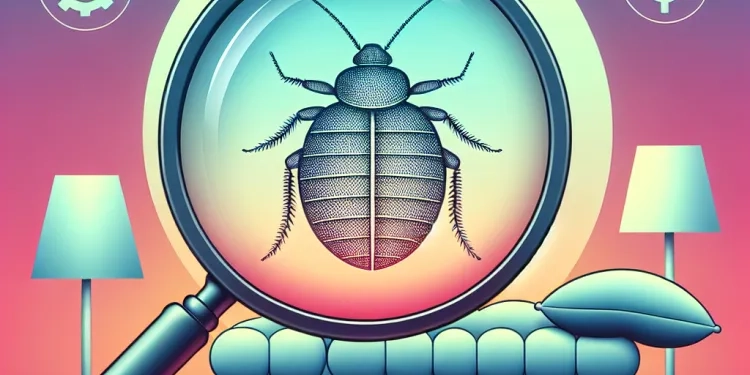
What are bed bugs?
Relevance: 76%
-
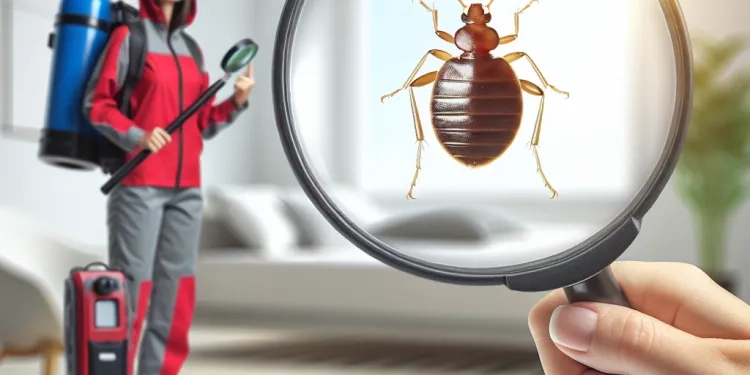
Can I get rid of bed bugs myself?
Relevance: 72%
-
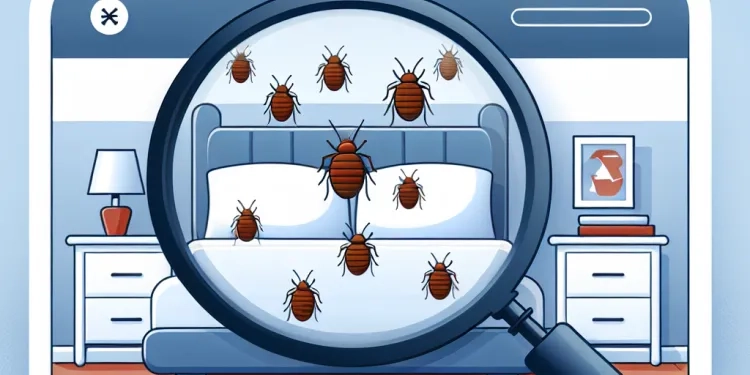
What are the signs of a bed bug infestation?
Relevance: 71%
-
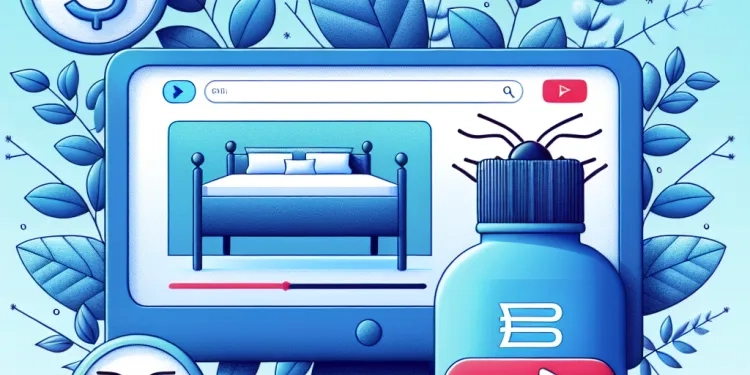
Are there any natural remedies for bed bugs?
Relevance: 70%
-

Why are bed bugs so difficult to eliminate?
Relevance: 70%
-
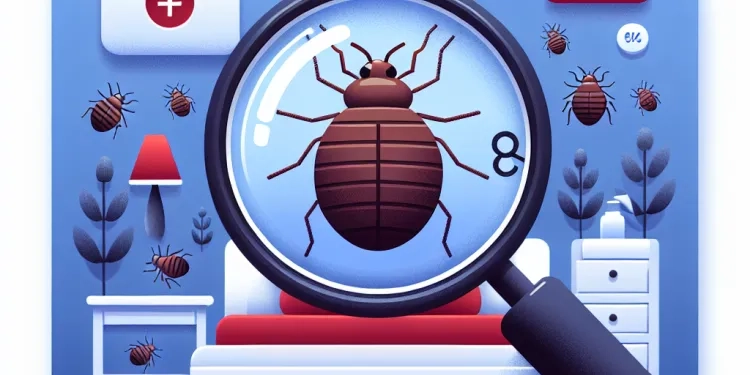
How can I tell if bites are from bed bugs?
Relevance: 70%
-

How do bed bugs enter my home?
Relevance: 69%
-

Will disposing of my mattress get rid of bed bugs?
Relevance: 68%
-
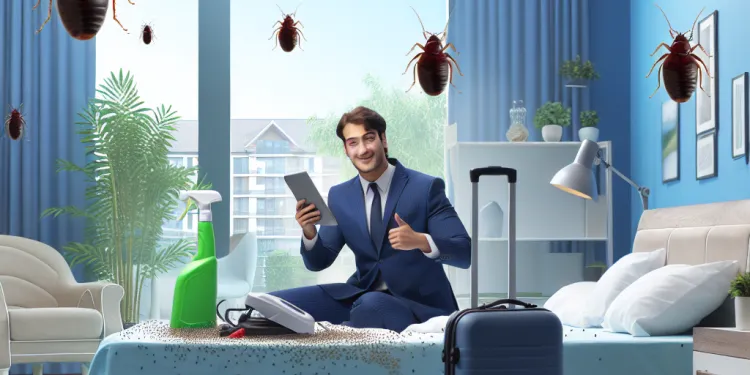
What should I do if I find bed bugs in my house?
Relevance: 67%
-

How can I prevent bringing bed bugs into my home?
Relevance: 65%
-

What items should I wash if I have bed bugs?
Relevance: 65%
-

How much does professional bed bug extermination cost in the UK?
Relevance: 62%
-
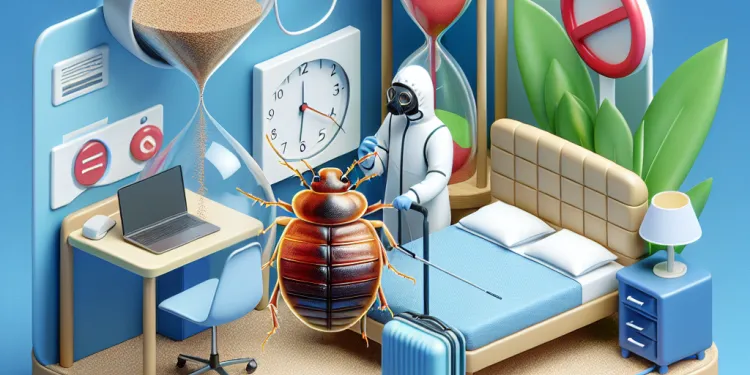
How long does a bed bug extermination process take?
Relevance: 60%
-
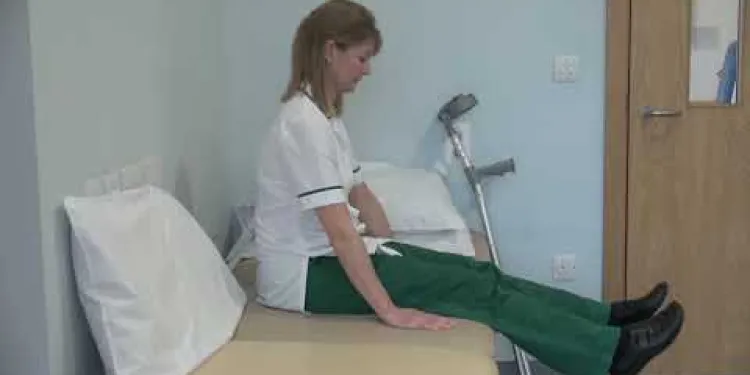
Hip replacement - getting into bed
Relevance: 34%
-
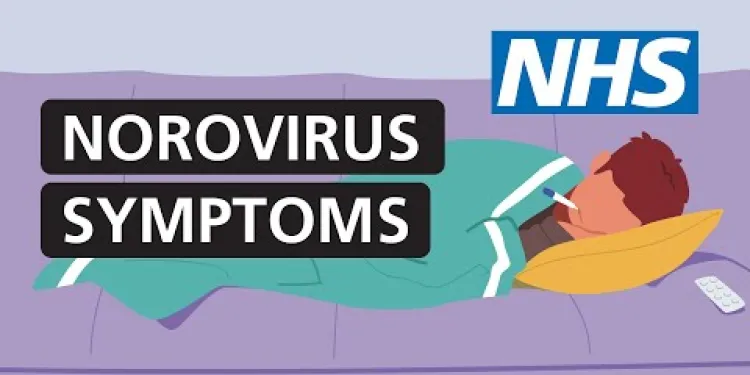
What is norovirus? (Diarrhoea and vomiting bug) | NHS
Relevance: 32%
-

What is dangerous driving?
Relevance: 31%
-

What is considered dangerous driving?
Relevance: 30%
-

What are the consequences of dangerous driving?
Relevance: 30%
-

Are there specific laws against dangerous driving?
Relevance: 29%
-

How is dangerous driving detected by police?
Relevance: 28%
-

Can dangerous driving lead to a criminal record?
Relevance: 27%
-

How can dangerous driving affect my insurance?
Relevance: 27%
-

What is the difference between careless driving and dangerous driving?
Relevance: 26%
-

What should I do if I encounter a dangerous driver on the road?
Relevance: 26%
-

MRSA Bug
Relevance: 26%
-

What is the most dangerous spider in the UK?
Relevance: 26%
-

Can distracted driving be classified as dangerous driving?
Relevance: 26%
-

Is driving too slowly considered dangerous driving?
Relevance: 26%
-

Is it dangerous driving to run a red light?
Relevance: 25%
-
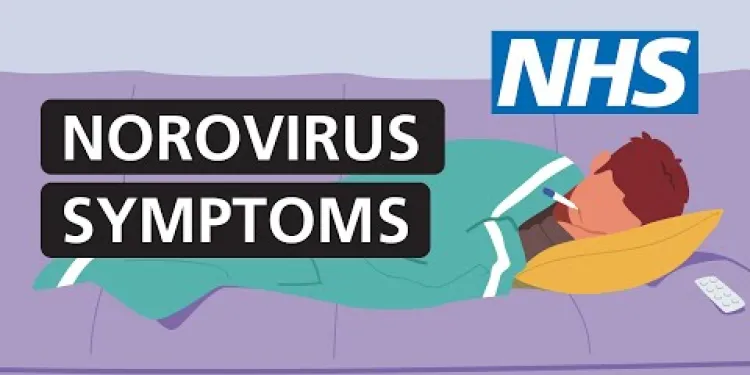
What is norovirus? (Diarrhoea and vomiting bug) | NHS
Relevance: 25%
-

Is my abnormal heart rhythm dangerous?
Relevance: 25%
-

How does screen time before bed specifically affect adolescents?
Relevance: 25%
-

Is road rage a form of dangerous driving?
Relevance: 25%
-

Is the bite from a false widow spider dangerous?
Relevance: 25%
-

Is driving without a seatbelt considered dangerous driving?
Relevance: 25%
-

Can staying in a car during a heatwave be dangerous?
Relevance: 25%
-

How does speeding contribute to dangerous driving?
Relevance: 24%
Are Bed Bugs Dangerous?
Understanding Bed Bugs
Bed bugs are small, parasitic insects that feed on the blood of humans and animals. Although they are not known to transmit disease, their presence can lead to a variety of health concerns and discomfort for people. In the United Kingdom, bed bug infestations have been on the rise, partly due to increased travel and resistance to common pest control measures.
Health Implications
While bed bugs themselves are not considered dangerous in terms of disease transmission, their bites can cause significant irritation and distress. The bites often result in red, itchy welts that can cause discomfort and may lead to secondary skin infections if scratched extensively. Some individuals may experience allergic reactions to bed bug bites, which can range from mild itching to severe anaphylactic responses. It is important to monitor any reactions closely and seek medical advice if necessary.
Mental and Emotional Effects
The presence of bed bugs can have a substantial impact on a person's mental and emotional well-being. Infestations often lead to anxiety, stress, and sleep disturbances due to the fear of being bitten during the night. In some cases, people develop insomnia or anxiety-related disorders as a result of prolonged exposure to these pests. These psychological effects can affect overall mental health and quality of life if not addressed.
Controlling Bed Bug Infestations
To effectively manage bed bug infestations, a combination of cleaning, monitoring, and professional pest control is recommended. Regularly washing and drying bedding and clothing at high temperatures, vacuuming infested areas, and using encasements for mattresses can help reduce bed bug presence. However, professional pest control treatments are often necessary for complete eradication. In the UK, many pest control companies offer specialized services to treat bed bug infestations, ensuring they are managed safely and effectively.
Are Bed Bugs Dangerous?
Understanding Bed Bugs
Bed bugs are tiny insects. They bite people and animals to drink their blood. Bed bugs don't spread diseases, but they can cause problems. Recently, there have been more bed bugs in the UK. This is because people travel more, and bed bugs are harder to kill with sprays.
Health Implications
Bed bug bites are not dangerous. But they can make you very itchy and uncomfortable. The bites can become red and swollen. If you scratch them too much, they can get infected. Some people are allergic to bed bug bites. This can make their skin itch a lot or cause serious reactions. If you have a bad reaction, it's important to see a doctor.
Mental and Emotional Effects
Having bed bugs can make you feel upset and worried. You might feel scared to sleep because of bites. This can cause stress and problems sleeping. Some people may feel very anxious or have trouble sleeping for a long time. Bed bugs can affect your happiness and how you feel each day. Getting help can make things better.
Controlling Bed Bug Infestations
To get rid of bed bugs, you need to clean and watch carefully. Wash your bedding and clothes in hot water often. Vacuum where bed bugs might be hiding. Put covers on mattresses to keep bed bugs out. Many times, you need a pest control expert to get rid of them completely. In the UK, pest control services can help make sure bed bugs are gone for good. They know how to do it safely.
Frequently Asked Questions
Are bed bugs dangerous?
While bed bugs are not known to transmit diseases, their bites can cause itching, discomfort, and allergic reactions in some people.
What do bed bug bites look like?
Bed bug bites often appear as small, red, itchy welts, usually in a line or cluster. However, reactions can vary from person to person.
Can bed bugs cause health problems?
Bed bugs can cause skin reactions in some individuals and excessive scratching can lead to secondary infections. Stress and insomnia are also possible due to the presence of bed bugs.
How can you tell if you have a bed bug infestation?
Signs include bite marks on the skin, small blood stains on sheets and mattresses, and tiny eggs or the bugs themselves in mattress seams or crevices.
Where do bed bugs typically hide?
Bed bugs can hide in mattress seams, bed frames, headboards, furniture, cracks in walls, and behind wallpaper or picture frames.
Do bed bugs only live in dirty environments?
No, bed bugs can thrive in clean and tidy environments as they are attracted to warmth and carbon dioxide, not dirt or filth.
How do bed bugs spread?
Bed bugs can spread through infested furniture, luggage, clothing, and other personal items. They can also move between rooms in multi-occupancy buildings.
Can I get rid of bed bugs on my own?
It's challenging to eliminate bed bugs on your own. Professional pest control is often necessary to completely eradicate an infestation.
What should I do if I suspect a bed bug infestation?
If you suspect a bed bug infestation, it's best to contact a professional pest control service to assess the situation and recommend treatment.
Do home remedies work against bed bugs?
Some home remedies can help reduce bed bugs temporarily, but they are unlikely to fully eradicate an infestation. Professional treatment is advised.
Can bed bugs infest other parts of my house?
Yes, if left unchecked, bed bugs can spread to other rooms by hitchhiking on clothes, furniture, and other items.
What methods do professionals use to treat bed bug infestations?
Professionals use methods such as heat treatments, chemical sprays, and steam cleaning to effectively treat and eliminate bed bug infestations.
Are bed bugs active year-round in the UK?
Yes, bed bugs are active year-round in the UK. However, travel during warmer months can sometimes increase the spread of infestations.
Can bed bugs survive in extreme temperatures?
Bed bugs cannot survive in extreme temperatures. Heat treatments above 45°C or freezing temperatures below -18°C can kill them.
How can I prevent a bed bug infestation?
Prevent infestations by inspecting second-hand furniture, keeping travel luggage off the floor, washing bed linens regularly, and sealing cracks in walls and floors.
Are bed bugs dangerous?
Bed bugs are tiny insects that bite people. They can make you itchy, but they are not very dangerous. They do not spread diseases. If you have lots of bites, you might want to see a doctor.
To help with bed bugs, try using a vacuum to clean your bed and clothes. You can also ask an adult to wash your sheets in hot water.
Bed bugs do not make you sick, but their bites can make your skin itch. Some people might feel uncomfortable or have an allergy.
How do bed bug bites look?
Bed bug bites are small and red. They can be itchy and look like little bumps on your skin.
If you think you have bed bug bites, it might help to use a cool cloth on the itchy spots. You can also ask a grown-up or nurse for advice.
Bed bug bites are small, red, and itchy bumps. The bites might be in a line or in a group. Different people might have different reactions to the bites.
Can bed bugs make you sick?
Bed bugs are little insects that bite people. Their bites can be very itchy. Most people do not get sick from bed bug bites, but some people might:
- Have red, itchy marks on their skin.
- Feel very itchy and scratch a lot.
- Have trouble sleeping because of the bites.
If you are worried about bed bug bites, you can:
- Talk to an adult or a doctor.
- Use cream that helps with itching.
- Make sure your bed and room are clean.
If you need help reading, ask someone to read with you. You can also use a text-to-speech tool.
Bed bugs are tiny bugs that can bite your skin and make it itchy. If you scratch too much, your skin might get infected. Having bed bugs can make you feel stressed and hard to sleep at night.
How can you know if there are bed bugs in your home?
Here is how you can check for bed bugs:
- Look for small, brown bugs on your mattress or bed.
- Check for tiny, dark spots on sheets or furniture. These could be bug poop.
- See if there are little bites on your skin that are red or itchy.
- Look for small, white eggs or clear bug shells.
If you think there are bed bugs:
Use a flashlight to search your bed and rooms carefully. Ask an adult or a pest expert for help. They can help you make sure.
Look for these signs:
- Bite marks on your skin
- Small blood stains on your sheets or mattress
- Tiny eggs or bugs in the seams or cracks of your mattress
Using a flashlight can help you see better. Try using a magnifying glass to look for the small bugs.
Where do bed bugs usually hide?
Bed bugs are small bugs that often live in beds, mattresses, and furniture. They like to hide in places where they are not easily seen. Here are some common places where you might find them:
- In the seams of your mattress
- In the cracks of bed frames
- Inside pillows and blankets
- In carpets and curtains
If you want help spotting bed bugs, you can use a flashlight to check small, dark places. It's a good idea to clean often and check for these hiding spots.
Bed bugs are tiny bugs. They can hide in many places. They hide in the seams of mattresses (the lines where the fabric is sewn together). They also hide in bed frames, headboards, and furniture. Bed bugs can hide in cracks in walls, behind wallpaper, or behind picture frames.
Do bed bugs only live in dirty places?
Bed bugs do not only live in dirty places. They can be in clean places too. Bed bugs like to live where people sleep, like in beds.
If you think you have bed bugs, you can use a magnifying glass to look for them. You can also ask an adult for help to get rid of bed bugs.
No, bed bugs can live in clean places. They like warm areas and the carbon dioxide that people breathe out. They do not need dirt to live.
How do bed bugs spread?
Bed bugs are tiny insects. They hide in beds and furniture. Bed bugs spread by crawling from one place to another. They can also travel on clothes, bags, and other things.
You can stop bed bugs from spreading by checking your things when you come home. Look at your clothes, bags, and bedding.
If you find bed bugs, it is good to talk to an adult for help. You can also use a flashlight to see them better and a vacuum to clean them up.
Bed bugs can spread through things like furniture, bags, clothes, and other personal items when they are infested. They can also move between rooms in buildings where many people live.
Here are some tips to help:
- Check used furniture and clothes before bringing them into your home.
- Keep your bags and clothes off the floor in hotels.
- If you think you have bed bugs, tell an adult and get help to clean them out.
- Use picture charts or videos to learn more about bed bugs and how they spread.
Can I make bed bugs go away by myself?
Yes, you can try to get rid of bed bugs on your own. Here are some simple steps to help you:
- Clean regularly: Wash your sheets and blankets in hot water often.
- Vacuum often: Use a vacuum to clean your bed, carpet, and floors. This can help pick up bed bugs.
- Seal cracks: Check for tiny cracks in walls or furniture and close them. Bed bugs can hide there.
- Use a bed bug spray: Find a spray made for killing bed bugs and follow the directions carefully.
- Ask for help: If it feels too hard, you can ask a friend or family member to help.
Tips: You can also use online videos and guides to understand more about getting rid of bed bugs. It's okay to ask for help from pest control if needed.
Getting rid of bed bugs by yourself can be hard. You might need a pest control expert to get rid of them all.
What should I do if I think I have bed bugs?
If you think there might be bed bugs in your home, it is a good idea to call a bug expert. They can come and look at the problem and tell you what to do next.
Can home tricks get rid of bed bugs?
Sometimes, home tricks can help get rid of bed bugs for a short time. But they often don't work completely to stop bed bugs. It is best to call experts for help.
Can bed bugs get into other parts of my house?
Yes, bed bugs can move to other rooms in your house.
Bed bugs are little insects that like to hide in places like beds, sofas, or curtains. They can crawl to new areas if they need to.
If you think you have bed bugs, it is good to check all the rooms and clean carefully. You can also ask an adult for help or call a bug expert!
Yes, bed bugs can move to other rooms. They do this by hiding on clothes, furniture, and other things.
How do experts get rid of bed bugs?
Professionals use special ways to remove bed bugs. Here are some methods they use:
- Heat Treatment: Experts make the room hot. Bed bugs do not like heat, so they die.
- Insecticides: Professionals use special sprays. These sprays kill bed bugs.
- Vacuuming: Experts use a vacuum to suck up bed bugs and their eggs.
It is a good idea to ask an expert for help. They know how to get rid of bed bugs safely.
Experts get rid of bed bugs by using heat, chemicals, and steam cleaning. These methods help to get rid of bed bugs from your home.
Do bed bugs come out all year in the UK?
Bed bugs are small bugs that love to hide in beds. They bite people and drink their blood.
In the UK, bed bugs are active all year. This means they do not go away in winter or summer. They are always around.
If you think you have bed bugs, you can use tools like a magnifying glass to help see them better. It can also be good to talk to a grown-up or expert to get rid of bed bugs.
Yes, bed bugs are always active in the UK. But when people travel more in the summer, bed bugs can spread more easily.
Can bed bugs live in very hot or very cold places?
Bed bugs are small bugs that live in beds and furniture. They like to stay warm.
If it is very cold, like in a freezer, bed bugs can die. They can't live when it is too hot, like inside an oven.
If you want to get rid of bed bugs, use special sprays or call a pest control expert for help.
Bed bugs don't like very hot or very cold places. If it gets hotter than 45°C or colder than -18°C, the bed bugs will die.
How can I stop bed bugs from getting into my home?
Bed bugs are tiny insects that can live in your bed and bite you. Here are some easy ways to keep them out of your home:
- Check your clothes and bags when you visit places with lots of people, like hotels.
- Wash your clothes and bedding in hot water if you think bed bugs might be on them.
- Use a protective cover for your mattress and pillows.
- Look for small, dark spots on your mattress. These might be signs of bed bugs.
- If you see bed bugs, tell an adult and call a pest control service for help.
Using a flashlight might help you spot bed bugs. You can also use a magnifying glass to see them better.
To stop bugs from getting into your home, you can do a few easy things. Check used furniture before bringing it home. When you travel, keep your suitcase off the floor. Wash bed sheets often. Also, seal up any small cracks in the walls and floors.
Useful Links
This website offers general information and is not a substitute for professional advice.
Always seek guidance from qualified professionals.
If you have any medical concerns or need urgent help, contact a healthcare professional or emergency services immediately.
- Ergsy carfully checks the information in the videos we provide here.
- Videos shown by Youtube after a video has completed, have NOT been reviewed by ERGSY.
- To view, click the arrow in centre of video.
- Most of the videos you find here will have subtitles and/or closed captions available.
- You may need to turn these on, and choose your preferred language.
- Go to the video you'd like to watch.
- If closed captions (CC) are available, settings will be visible on the bottom right of the video player.
- To turn on Captions, click settings .
- To turn off Captions, click settings again.
More Items From Ergsy search
-

Are bed bugs dangerous?
Relevance: 100%
-

Do bed bugs only live in beds?
Relevance: 80%
-

Bed Bugs / bedbugs
Relevance: 78%
-

What are bed bugs?
Relevance: 76%
-

Can I get rid of bed bugs myself?
Relevance: 72%
-

What are the signs of a bed bug infestation?
Relevance: 71%
-

Are there any natural remedies for bed bugs?
Relevance: 70%
-

Why are bed bugs so difficult to eliminate?
Relevance: 70%
-

How can I tell if bites are from bed bugs?
Relevance: 70%
-

How do bed bugs enter my home?
Relevance: 69%
-

Will disposing of my mattress get rid of bed bugs?
Relevance: 68%
-

What should I do if I find bed bugs in my house?
Relevance: 67%
-

How can I prevent bringing bed bugs into my home?
Relevance: 65%
-

What items should I wash if I have bed bugs?
Relevance: 65%
-

How much does professional bed bug extermination cost in the UK?
Relevance: 62%
-

How long does a bed bug extermination process take?
Relevance: 60%
-

Hip replacement - getting into bed
Relevance: 34%
-

What is norovirus? (Diarrhoea and vomiting bug) | NHS
Relevance: 32%
-

What is dangerous driving?
Relevance: 31%
-

What is considered dangerous driving?
Relevance: 30%
-

What are the consequences of dangerous driving?
Relevance: 30%
-

Are there specific laws against dangerous driving?
Relevance: 29%
-

How is dangerous driving detected by police?
Relevance: 28%
-

Can dangerous driving lead to a criminal record?
Relevance: 27%
-

How can dangerous driving affect my insurance?
Relevance: 27%
-

What is the difference between careless driving and dangerous driving?
Relevance: 26%
-

What should I do if I encounter a dangerous driver on the road?
Relevance: 26%
-

MRSA Bug
Relevance: 26%
-

What is the most dangerous spider in the UK?
Relevance: 26%
-

Can distracted driving be classified as dangerous driving?
Relevance: 26%
-

Is driving too slowly considered dangerous driving?
Relevance: 26%
-

Is it dangerous driving to run a red light?
Relevance: 25%
-

What is norovirus? (Diarrhoea and vomiting bug) | NHS
Relevance: 25%
-

Is my abnormal heart rhythm dangerous?
Relevance: 25%
-

How does screen time before bed specifically affect adolescents?
Relevance: 25%
-

Is road rage a form of dangerous driving?
Relevance: 25%
-

Is the bite from a false widow spider dangerous?
Relevance: 25%
-

Is driving without a seatbelt considered dangerous driving?
Relevance: 25%
-

Can staying in a car during a heatwave be dangerous?
Relevance: 25%
-

How does speeding contribute to dangerous driving?
Relevance: 24%


